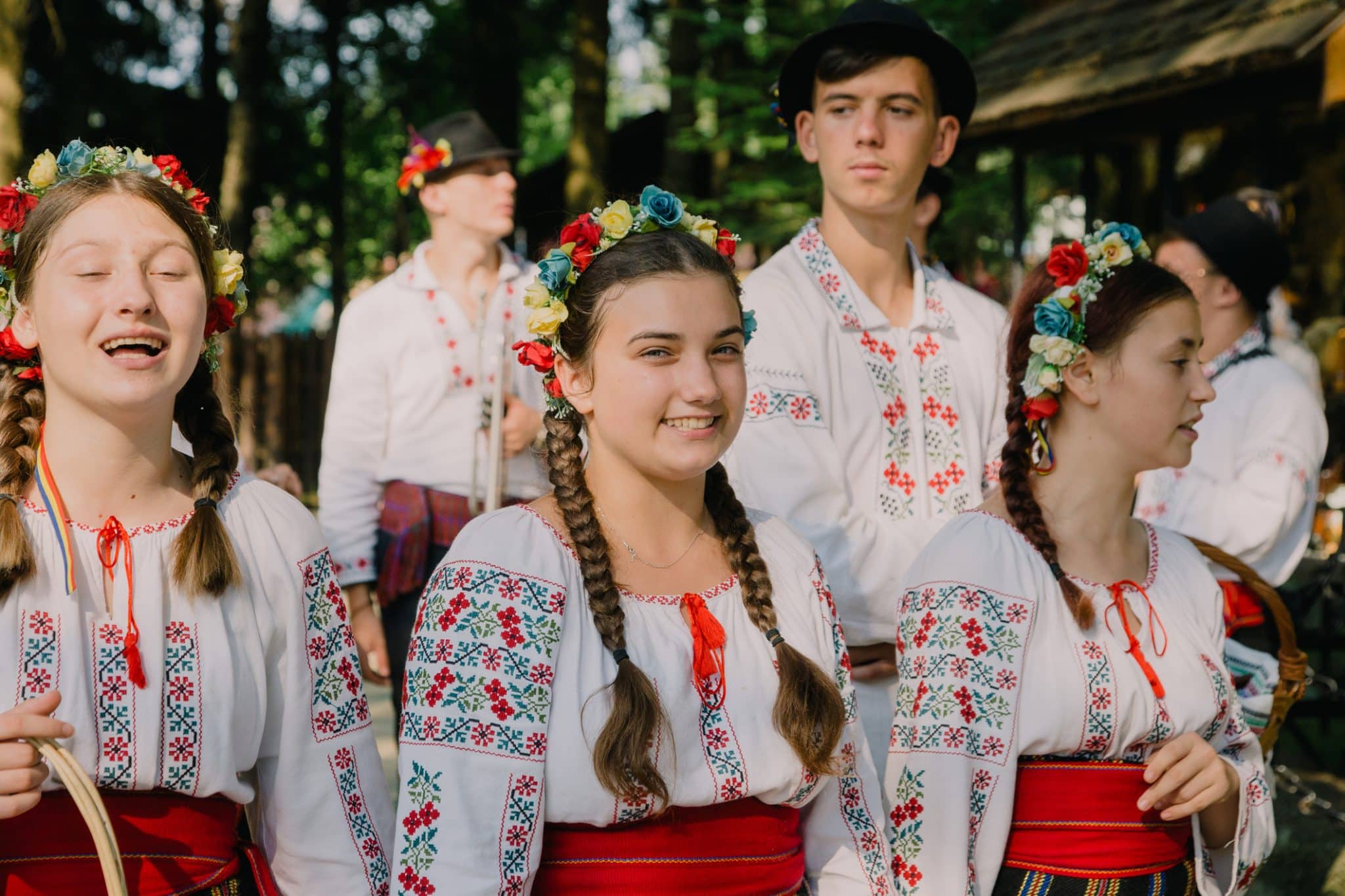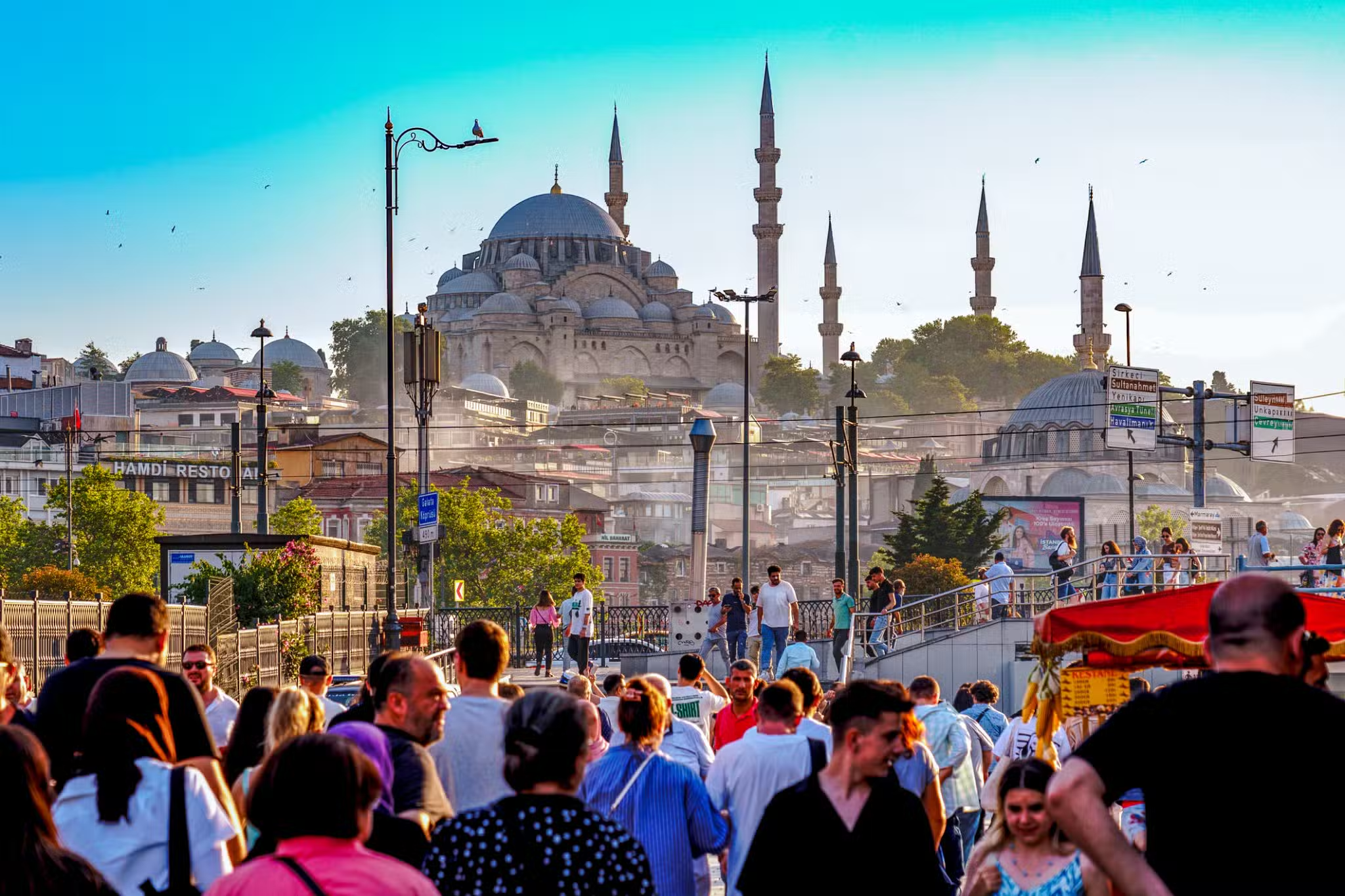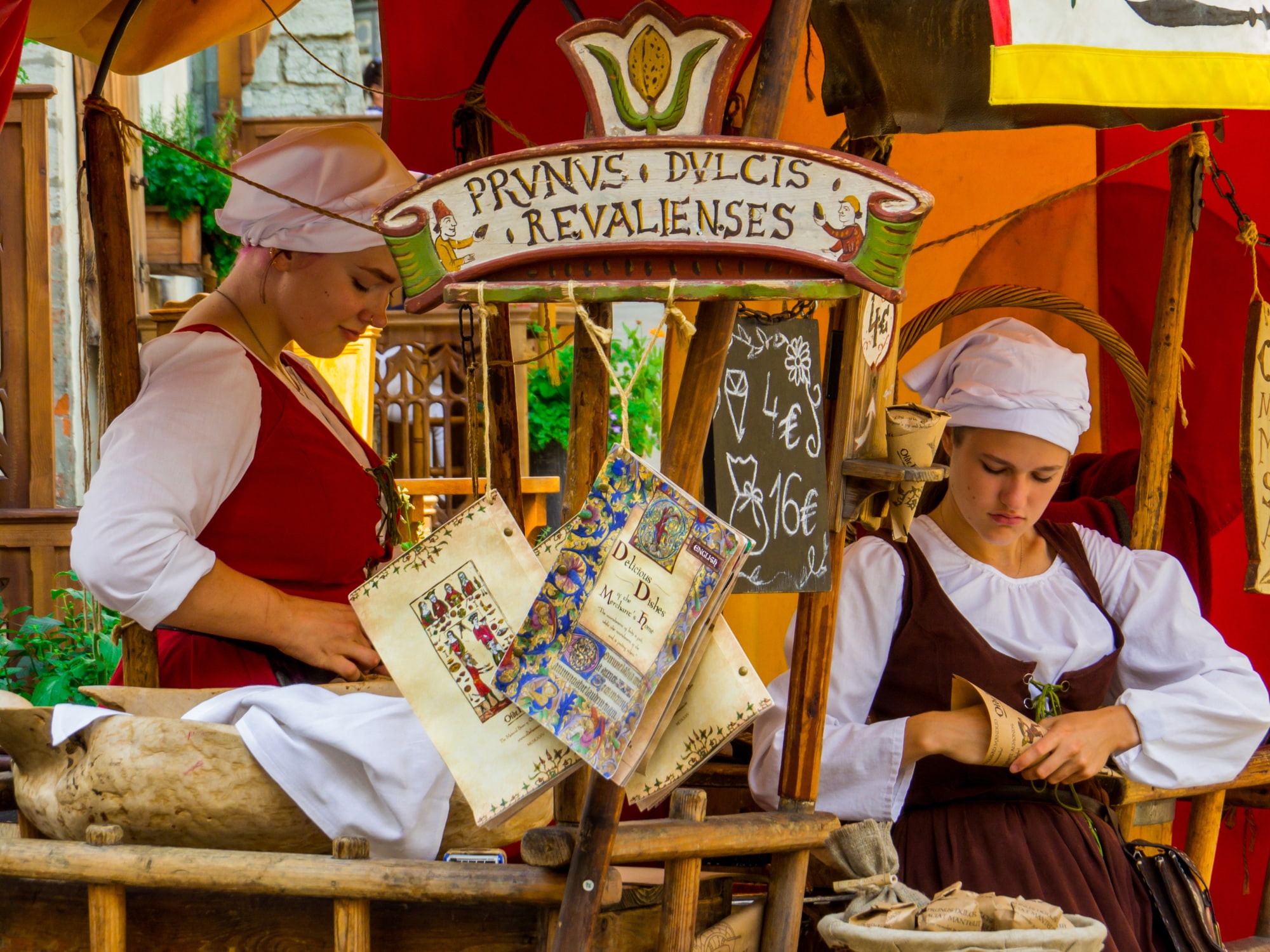The Talking Phrasebook Series presents useful phrases and words in side-by-side translation and with audio files specifically geared to help students work on listening skills and pronunciation. Below, you will find several useful phrases and words. To the left is the English and to the far right is the Romanian translation. In the center column for each row is a play button. The recorded file will feature first English, then the Romanian in three versions: one slow, one with each syllable broken out, and a last version that will be spoken as it might be overheard in a conversation between native speakers.
10 Facts about Romanian
Status: Romanian evolved from Vulgar Latin, introduced to the region after the Roman conquest of Dacia (modern-day Romania and Moldova) in 106 CE. It later developed under strong Slavic, Hungarian, and Turkish influence, especially in vocabulary and pronunciation. Today, Romanian and Italian are estimated to be about 65-85% interintelligible when written, but much less so when spoken. Around 70–75% of Romanian words come from Latin, preserving much of the original Romance core.
Speakers: Romanian has about 24–26 million native speakers worldwide. Most, about 19 million, live in Romania. About 2.5–3 million live in Moldova. Significant diasporas live in Ukraine, Serbia, Hungary, Bulgaria, Russia, Italy, Spain, the UK, and the US. The US population is estimated at between 50,000-100,000.
Name: The Soviets promoted “Moldovan” as a separate language to weaken the republic’s ties with Romania. However, in Moldova’s 1991 Declaration of Independence, the language is referred to as “Romanian.” Balancing the country’s political divides, however, the 1994 constitution referred to it as “Moldovan.” Yet, in 2012, Moldova’s Ministry of Education began using “Romanian” and, in 2013 the wider government followed suit. The Constitutional Court confirmed Romanian as the correct name, differing to the Declaration of Independence as the document upon which the Constitution is based on. Only in 2023 did the parliament officially replace all references to Moldovan, including in the Constitution, with Romanian. A significant yet falling number of Moldovans still call the language “Moldovan.” According to the 2014 census, nearly 57% of the population proclaimed their mother tongue as Moldovan. In the 2024 census, this number had fallen to 49%. The divide is also seen as political, with those using “Romanian” generally favoring liberalism and relations with Europe while those who use “Moldovan” are more likely to favor communism and relations with Russia.
Dialects and Variants: Romanian has four main dialects: Daco-Romanian (the standard language spoken in Romania and Moldova), Aromanian, Megleno-Romanian, and Istro-Romanian. Differences between how the language is spoken in Moldova and Romania are limited largely to pronunciation (accent) and some vocabulary, with Moldovan showing slightly more Russian influence. Within Moldova itself, there is also a divide between urban and rural speakers, mostly affecting accent.
Gender: Romanian uses three grammatical genders—masculine, feminine, and neuter. However, as in ancient Latin, neuter nouns behave uniquely: they are masculine in the singular and feminine in the plural. Romanian is the only modern Romance language to preserve this aspect of Latin.
Cases: The Romanian case system is relatively simple. Technically, there are five grammatical cases: nominative, accusative, genitive, dative, and vocative. However, in practice, the nominative and accusative share one form, as do the genitive and dative, leaving three practical distinctions.
Respect: Romanian expresses respect through formal second-person pronouns. The informal “tu” is used for a single person and “voi” for informal groups. In formal contexts such as job interviews or official correspondence, the pronoun “dumneavoastră” (literally “Your Lordship”) serves as the polite “you” for both singular and plural. Perhaps because of its length, it is often abbreviated in writing as “dvs.” and often omitted in speech, as using the polite verb conjugation alone can convey formality just as effectively. For instance, “locuiești aici?” (Do you live here? (informal)) and “locuiți aici?” (“Do you live here?” (polite)) shows the difference. Today, informal pronouns are widely accepted in all but the most formal social situations. Examples below use a mix of formal and informal language, depending on what would likely be appropriate in given situations.
Subject optional: Romanian, like many Romance languages, is “pro-drop” and thus sentences do not require the subject to be named, especially when the pronoun is already implied by the verb form.
Diminutives: Romanians frequently modify words with –el/–ică, –uț/–uță, or –aș/–așă to show affection or familiarity. For instance “frate” can become “frățior” (“little brother”) and mamă can become mămică (“mommy”).
Articles: In Romanian, the indefinite article comes before the noun while the definite article is attached as a suffix to the noun. Thus, for instance, un băiat (“a boy”), o fată (“a girl”), and un scaun (“a chair”) but băiatul (“the boy”), fata (“the girl”), and scaunul (“the chair”). In the singular, articles agree with gender, but the plural form niște means “some” and is used for all genders, as in niște băieți (“some boys”).
Romanian Alphabet with Pronunciation and Examples
Romanian uses a 31-letter Latin-based alphabet with five special letters—Ă, Â, Î, Ș, and Ț. Romania adopted the Latin alphabet in the 1860s, while Moldova continued using Cyrillic until the early 1990s.
| Letter | Approx. Pronunciation | Example (Romanian) | Meaning (English) |
| Ă ă | Like the “a” in sofa or about | măr | apple |
| Â â | A deep, central vowel, somewhat like uh in hurt (occurs only inside words) |
câmp | field |
| Î î | Same sound as â; (used at the beginning or end of words) |
înțeleg | I understand |
| Ș ș | Like “sh” in shoe or ship | școală | school |
| Ț ț | Like “ts” in cats | țară | country |
Survival Basics in Romanian
| Hello! | Salut! *informal, conversational – to greet a friend |
|
| Hello! | Bună ziua! *more formal – to greet a teacher/passer-by. Saying just “Bună” is another informal greeting. |
|
| Yes | Da | |
| No | Nu | |
| Good morning! | Bună dimineața! | |
| Good afternoon! | Bună ziua! | |
| Good evening! | Bună seara! | |
| What’s up? | Ce faci?
*informal |
|
| What’s up? | Ce faceți?
*more formal |
|
| How are you? | Cum te simți? | |
| Good, thanks, and you? | Bine, mersi, și tu? | |
| Good bye! | Pa! (most commonly repeated: Pa pa!) *informal, conversational |
|
| Good bye! | La revedere! *formal |
|
| See you later! | Pe curând! | |
| Sorry! | Scuze! | |
| Open/closed | Deschis/închis | |
| Pull/push | Trage/împinge *when referring to a door |
|
| Small/big | Mic/mare | |
| Do you speak English? | Vorbiți engleză? | |
| I don’t speak English. | Nu vorbesc engleză. | |
| I only speak a little Romanian. | Vorbesc doar puțin româna. | |
| I understand | Înțeleg. | |
| I don’t understand. | Nu înțeleg. | |
| Thank you! | Mulțumesc!
*formal |
|
| Thank you! | Mersi!
*informal |
|
| Thank you very much! | Mulțumesc foarte mult! | |
| Very well, thanks! | Foarte bine, mersi! | |
| Well | Bine (adv.) | |
| Poor | Rău (adv.) | |
| Good | Bun (adj. m) Bună (adj. f) | |
| Bad | Rău (adj. m) Rea (adj. f) | |
| Please | Te rog! (singular) Vă rog! (formal / plural) |
|
| You’re welcome! | Cu plăcere! *when responding to “Mulțumesc/mersi” |
|
| You’re welcome! | Nu-i pentru ce! *More informal |
|
| Excuse me! | Îmi cer scuze! | |
| A little | Puțin / Un pic | |
| Could you speak more slowly? | Ați putea vorbi puțin mai lent?
*Formal |
|
| Could you repeat, please? | Ați putea repeta, vă rog?
*more formal and plural |
|
| Could you write that down? | Ați putea nota? *more formal and plural |
|
| I would like to make an appointment. | Aș dori să fac o programare. | |
| My bag was stolen | Mi-a fost furată geanta. Note: In Romanian, “bag” (“geanta”) is a feminine noun, therefore the verb must agree and is different than in the two examples below featuring masculine nouns. |
|
| My wallet was stolen | Mi-a fost furat portofelul. | |
| My passport was stolen | Mi-a fost furat pașaportul. | |
| I need a doctor! | Am nevoie de un doctor! | |
| Call the police! | Chemați poliția! |
Introductions in Romanian
| What is your name? | Cum te cheamă? | |
| Pleased to meet you! | Încântat de cunoștință! (m.) | |
| Pleased to meet you! | Încântată de cunoștință! (f.) | |
| Pleased to meet you! | Încântați de cunoștință! (pl.) | |
| I am 25 years old. | Am 25 de ani. | |
| How old are you? | Câți ani ai? | |
| Where are you from? | De unde sunteți? | |
| I am American. | Sunt american. (m.) | |
| No, I am from Canada. | Nu, sunt din Canada. | |
| She is Australian. | Ea este australiancă. (f)
The “că” at the end “australian” makes it feminine. This ending can likewise be added to “american” and other nationalities. |
|
| He is Irish. | El este irlandez. | |
| We are from New Zealand. | Noi suntem din Noua Zeelandă. | |
| They are from Wales. | Ei sunt din Țara Galilor. | |
| How do you like Moldova? | Cum vi se pare Moldova? | |
| I like Moldova very much. | Îmi place Moldova foarte mult. | |
| Have you ever been to Bender? | Ați fost vreodată la Bender? | |
| I have never been to Tiraspol. | Nu am fost niciodată la Tiraspol. | |
| This is my second time in Moldova. | E a doua oară când vin în Moldova. | |
| What do you do? | Cu ce vă ocupați? | |
| I am a doctor | Sunt doctor. | |
| I am a teacher | Sunt profesor. (m)
*In Romanian, this refers to a high-school or university professor. A kindergarten teacher is an “educator. (m.) / educatoare (f.)” while a primary school teacher is an “învățător. (m.) / învățătoare (f.)”. A female high-school or university professor is a “profesoară (f.)”. |
|
| I am a businessman | Sunt om de afaceri. (m.) | |
| I am a businesswoman | Sunt femeie de afaceri. (f.) | |
| I am a student. | Sunt studentă. (f.) | |
| I am on vacation. | Sunt în concediu / vacanță. *If you’re working |
|
| I am on vacation. | Sunt în vacanță. *If you are a student on break |
|
| I am here on business. | Sunt aici pentru afaceri. | |
| I am studying here. | Studiez aici. |
Asking Directions in Romanian
| Where are the toilets? | Unde este baia? | |
| Men | Bărbați (toilet) | |
| Women | Femei (toilet) | |
| Where is the nearest bank? | Unde se află cea mai apropiată bancă? | |
| Where is the nearest post office? | Unde se află cel mai apropiat oficiu poștal? | |
| Where is the nearest train station? | Unde se află cea mai apropiată stație de tren. *note: “gară feroviară” (railway station) is often used in place of stație de tren. |
|
| Where can I find Wi-Fi? | Unde pot avea acces la Wi-Fi? | |
| Do you know the Wi-Fi password? | Aveți parola de la Wi-Fi? | |
| Where can I charge my phone? | Unde îmi pot încărca telefonul? | |
| How can I order a taxi? | Cum pot comanda un taxi? | |
| Straight ahead! | Drept înainte! | |
| Take a right! | Luați-o la dreapta! | |
| Take a left! | Luați-o la stânga! | |
| After the stoplight | După semafor | |
| Next | Următorul (m.) / următoarea (f.) | |
| First | Primul (m.) / prima (f.) | |
| Last | Ultimul (m.) / ultima (f.) |
Shopping in Romanian
| How much does that cost? | Cât costă? | |
| Where is the currency exchange? | Unde se află schimbul valutar? | |
| Where can I buy tickets? Is it free? | De unde pot cumpăra bilete? Este pe gratis? | |
| The menu, please! | Pot primi meniul, vă rog! | |
| I’d like a beer, please | Aș dori o bere, vă rog! | |
| I’d like the bill, please. | Pot avea nota de plată, vă rog. | |
| Can we split the bill? | Putem împărți nota de plată? | |
| Do you accept credit cards? | Pot plăti cu cardul? |
Counting in Romanian
| 0 | Zero | |
| 1 | Unu | |
| 2 | Doi (m.) / Două (f.) | |
| 3 | Trei | |
| 4 | Patru | |
| 5 | Cinci | |
| 6 | Șase | |
| 7 | Șapte | |
| 8 | Opt | |
| 9 | Nouă | |
| 10 | Zece | |
| 11 | Unsprezece | |
| 12 | Doisprezece (m) / Douăsprezece (f) | |
| 13 | Treisprezece | |
| 14 | Paisprezece | |
| 15 | Cincisprezece | |
| 16 | Șaisprezece | |
| 17 | Șaptesprezece | |
| 18 | Optsprezece | |
| 19 | Nouăsprezece | |
| 20 | Douăzeci | |
| 21 | Douăzeci și unu | |
| 22 | Douăzeci și doi (m.) /două (f. ) | |
| 30 | Treizeci | |
| 40 | Patruzeci | |
| 50 | Cincizeci | |
| 60 | Șaizeci | |
| 70 | Șaptezeci | |
| 80 | Optzeci | |
| 90 | Nouăzeci | |
| 100 | O sută | |
| 111 | O sută unsprezece | |
| 125 | O sută douăzeci și cinci | |
| 200 | Două sute | |
| 300 | Trei sute | |
| 400 | Patru sute | |
| 500 | Cinci sute | |
| 600 | Șase sute | |
| 700 | Șapte sute | |
| 800 | Opt sute | |
| 900 | Nouă sute | |
| 1000 | O mie |
More Phrasebooks

The Talking Romanian (in Moldova) Phrasebook
The Talking Phrasebook Series presents useful phrases and words in side-by-side translation and with audio files specifically geared to help students work on listening skills and pronunciation. Below, you will find several useful phrases and words. To the left is the English and to the far right is the Romanian translation. In the center column […]

The Talking Turkish Phrasebook
The Talking Phrasebook Series presents useful phrases and words in side-by-side translation and with audio files specifically geared to help students work on listening skills and pronunciation. Below, you will find several useful phrases and words. To the left is the English and to the far right is the Turkish translation. In the center column for […]

The Talking Estonian Phrasebook
The Talking Phrasebook Series presents useful phrases and words in side-by-side translation and with audio files specifically geared to help students work on listening skills and pronunciation. Below, you will find several useful phrases and words. To the left is the English and to the far right is the Estonian translation. In the center column […]




